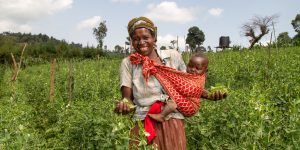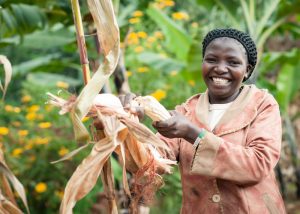Click here for a video about our action project!
Water is the foundation of life. It is something that no human, creature, or plant can exist without; the entity that ties our entire world together. It’s also taken for granted and wasted every day by the very people it keeps alive.
But who suffers the most? Sadly, the world’s impoverished (and specifically the women and children). These are the people that must walk many miles carrying all of their family’s water from the source to their homes. This heartbreaking reality is what prompted my action group to partner with Water1st International, whose mission is to create sustainable water projects that reach the world’s poorest.
- Women carry water for many kilometers to their homes. https://water1st.org/carry5/
- Children also help carry water. https://www.jenmansafaris.com/women-carrying-water-on-their-heads/
We dove head first into our action project by participating in their 5k to simulate what it’s like to carry up to 40 gallons of water a day. Then, we researched and collaborated with the organization to create an engaging and memorable event on campus.
I quickly learned that Water1st International actively uses Gaian and systems theory principles in every project and country they work with. The purpose of Gaian theory is to understand the earth as a holistic, integrated, and self-regulating system. It is a whole-systems, global approach for thinking sustainably. Water1st International uses the same vision; to integrate community-managed water projects that can be maintained by the community for years and years. We learned this first hand when we brought a Water1st International representative, Zoe, to speak on the UW campus. She spoke of their 2,523 completed projects and 200,000 lives saved from clean water access. She touched on their emphasis of resilience and sustainability, so that communities can implement successful water sources that will last. Finally, she spoke about their achievements in helping people return to farming without the worry of malnutrition or waterborne disease.

http://www.fwi.co.uk/international-agriculture/6-farming-similarities-between-the-uk-and-africa.htm

Carolyne Lunani harvests her maize in late August. With the maize she harvested, she now has enough food for the year and is able to pay for her children’s school fees.
Our action project was a success because it reached the UW campus and raised awareness for such an important cause. Zoe reminded everyone that we cannot succeed if we don’t think in circles. Gaian and systems theory serve as a guideline to a sustainable future in food, water, and humanity. By living in the United States, we often overlook the real scarcity of water on our planet. Truthfully, only 1% of the earth’s water is usable for us, and 70% of that is used for agriculture.
I have hope that humanity will follow in the footsteps of Water1st International. Ecovillages, localism, ethical eating, less meat consumption, mindfulness about virtual water—these are the ways that I’ve learned to think in circles. These are the ways that will preserve our planet (and ourselves). This action project truly highlighted the importance of interconnecting human systems with the global ecosystem, and I am so glad that I was able to be a part of it.


